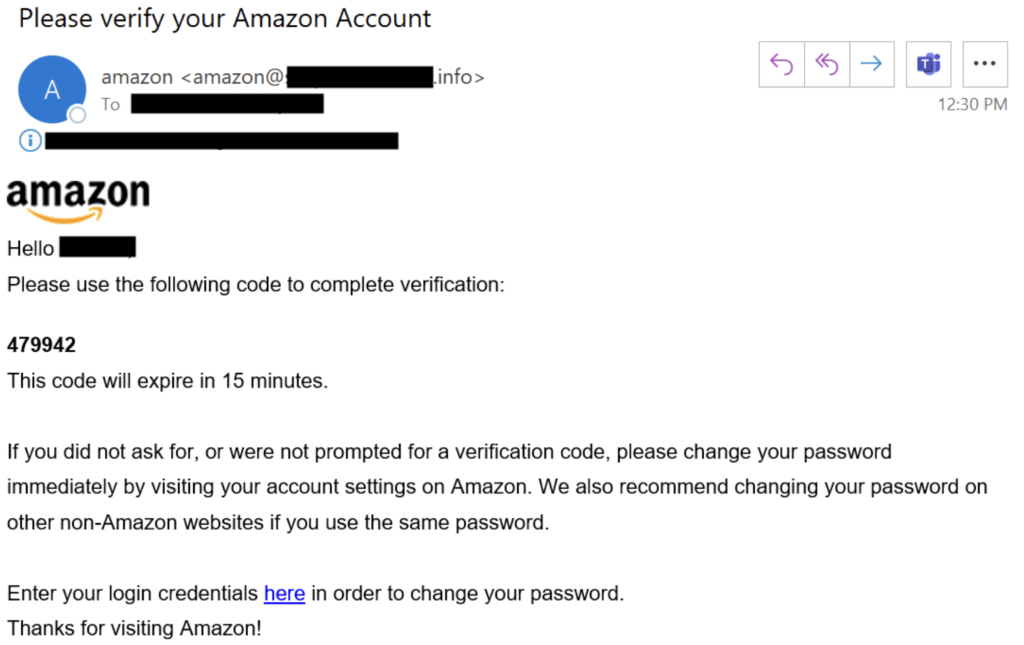Amazon is a large multinational technology company trusted by over 200 million users. Scammers often imitate any company that has cultivated widespread consumer trust.
According to The Federal Trade Commission, Amazon was the most frequently impersonated business. About 96,000 people were reported to be targeted by Amazon impersonators, and 6,000 lost money.
The average amount of money lost was $1,000 per victim.
Scammers trick customers into divulging financial or personal information by employing Amazon or Amazon prime day scams. Continue reading this article to disarm scammers from tricking you!
“Sense Of Urgency” Tactic
Scammers often establish a sense of urgency in their scams. Malicious actors want you to act first and think later. This way, you are more likely to give the scammer whatever he or she requests.
Take a second if you read a message and feel an immediate urge to act. That signifies that a sense of urgency was included.
Sense Of Urgency Red Flags Include:
- “Act now or else you can’t reverse the fraudulent charge.”
- “Act within 24 hours.”
- “Call immediately if this was not you.”
Phrases like these instill a sense of urgency, which compels you to act quickly without noticing red flags.
If you receive an email, text message, or phone message informing you of a fraudulent charge on your Amazon account or “verifying” information, ignore it. If you are concerned, navigate to Amazon’s website and contact Amazon’s customer support directly from the site.
Amazon will never use these methods to “verify” information like credit card numbers, passwords, or personal information.
Types Of Amazon Scams
Phishing Attempts
Amazon scams commonly are phishing attempts. Phishing is a malicious attempt to gain personal or other valuable information by pretending to be someone else.
An example of a phishing attempt is below.

Notice how the email asks for your login credentials? That is extremely suspicious. If you receive an email notifying you of something, that is likely fine. However, do not give any information or click any links in the email.
If you are concerned about the security of your Amazon account, change your password directly from the Amazon homepage. If your team members have Amazon accounts too, encourage them to change their passwords.
Lastly, though you cannot see the email address in this example, always check who the sender is. That could be a dead giveaway that the email is from a scammer.
Malware
Malware, or malicious software, is software designed to damage devices and gain unauthorized access to information. You can accidentally download malware if you click any links or attachments in your messages.
This may sound redundant, but do not click any links, attachments, or graphics in the scam messages. Moreover, some scam messages are designed to have graphics that trick you into clicking them.
For example, the graphic could be a box with an x. You might click it trying to escape the message or email. However, it may take you to a separate website or download malware.
Viruses
A computer virus is code meant to spread from device and device and replicate itself. It changes the computer’s operation. Depending on the virus, this cyber attack may harm the device’s software and corrupt files and data.
The way you avoid viruses is similar to how you avoid malware. Do not click anything in the message.
Staying up to date on the latest scams is not enough to comprehensively protect you and your information. Consider purchasing Agency’s affordable personal cybersecurity plan!
On top of actively monitoring the dark web for your information and removing your personal information from the internet, Agency’s plan also includes:
- 24/7 monitoring and response against cyber threats by cybersecurity experts
- VPNs
- Next-Gen Antivirus/EDR
- ID Theft Coverage
- Active Dark Web Monitoring
- Personal Information Removal
- Active Security Monitoring & Response by U.S. Professionals
Take steps to protect your privacy and financial security through Agency! By signing up for the newsletter, you could receive a free one month trial.







